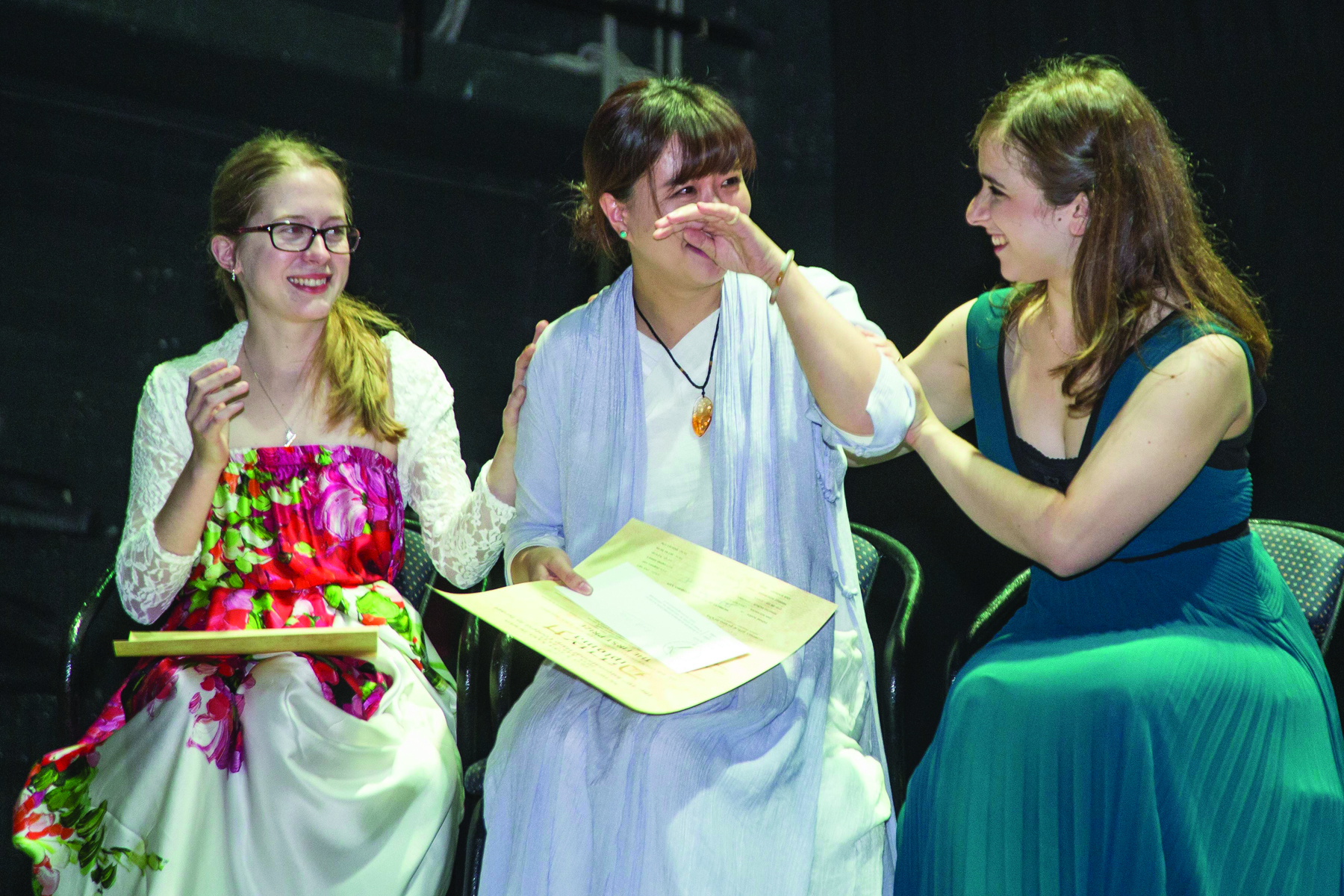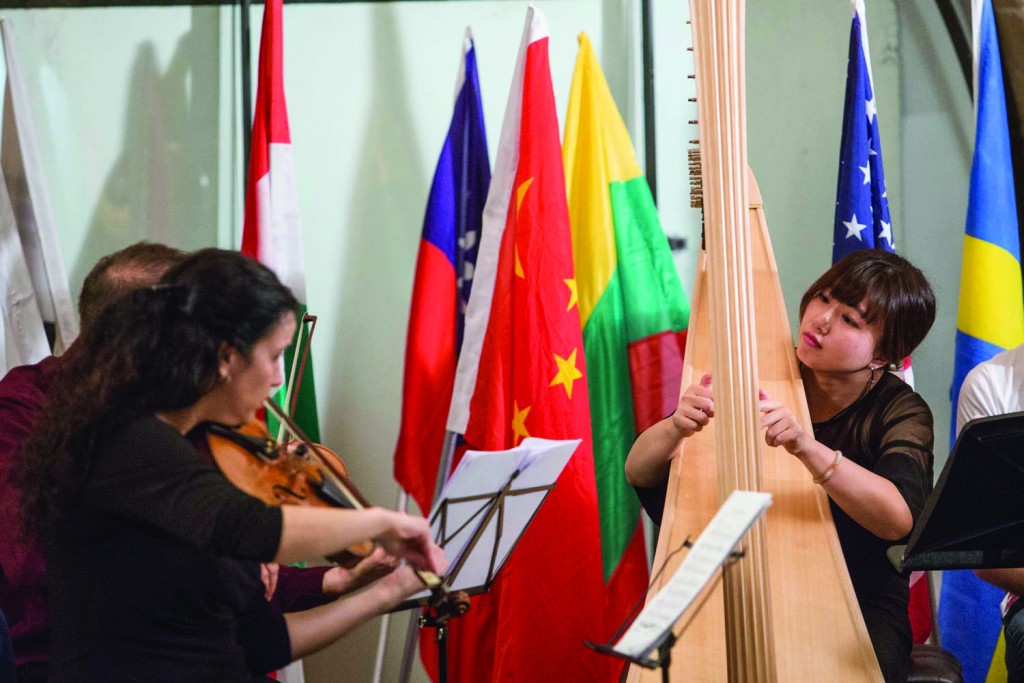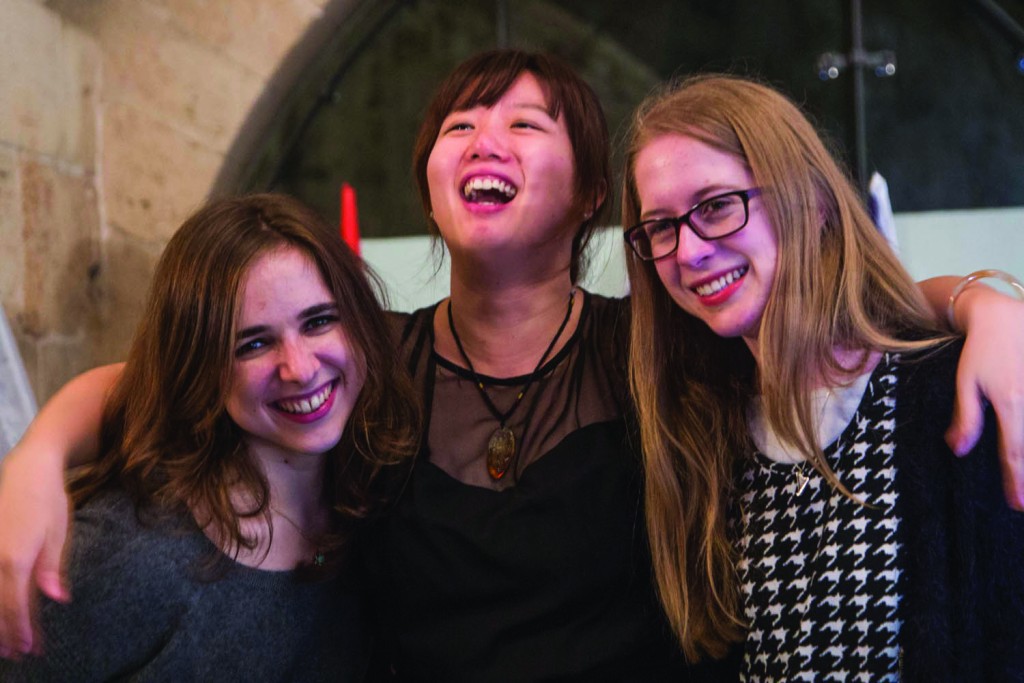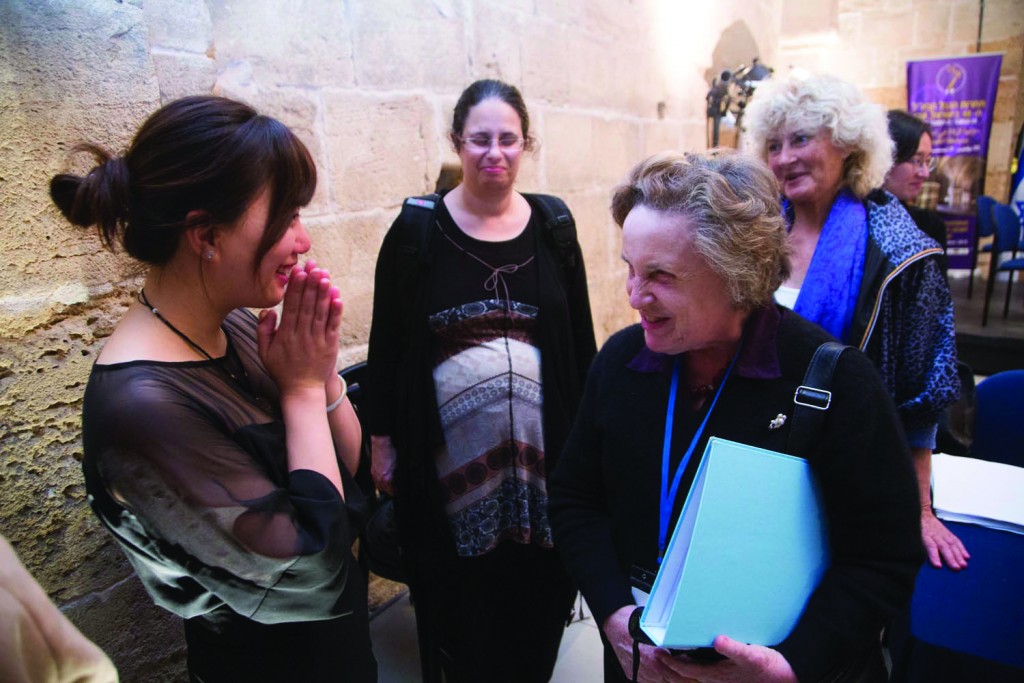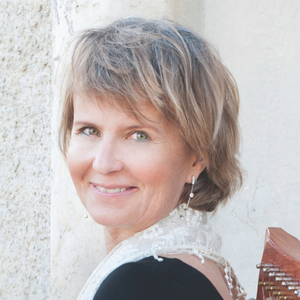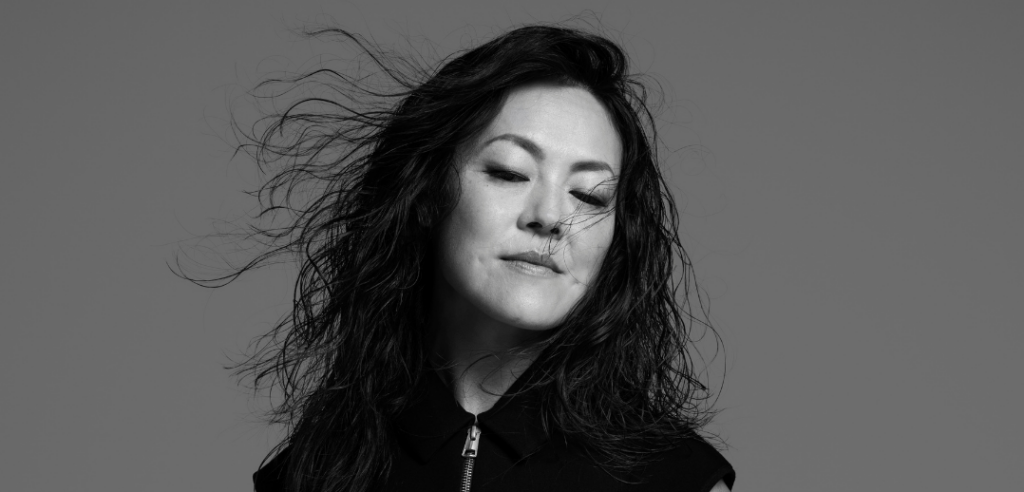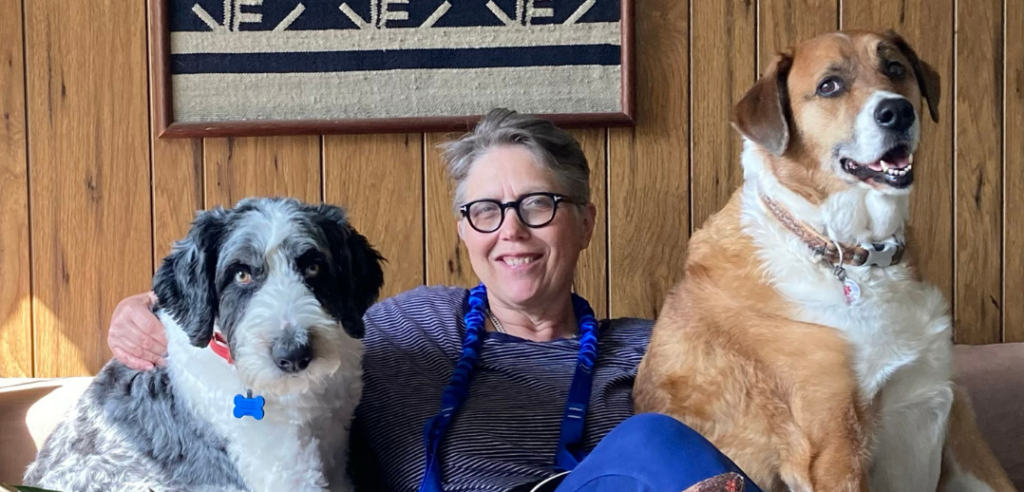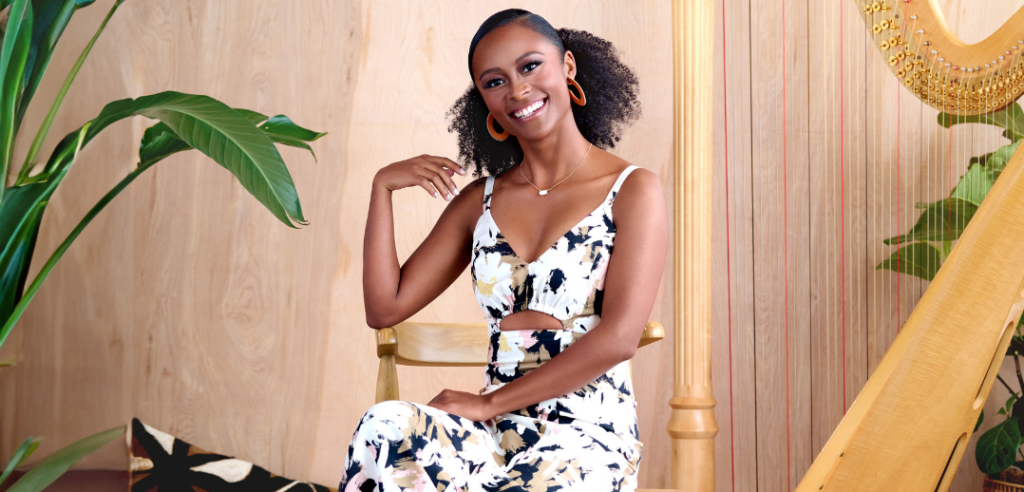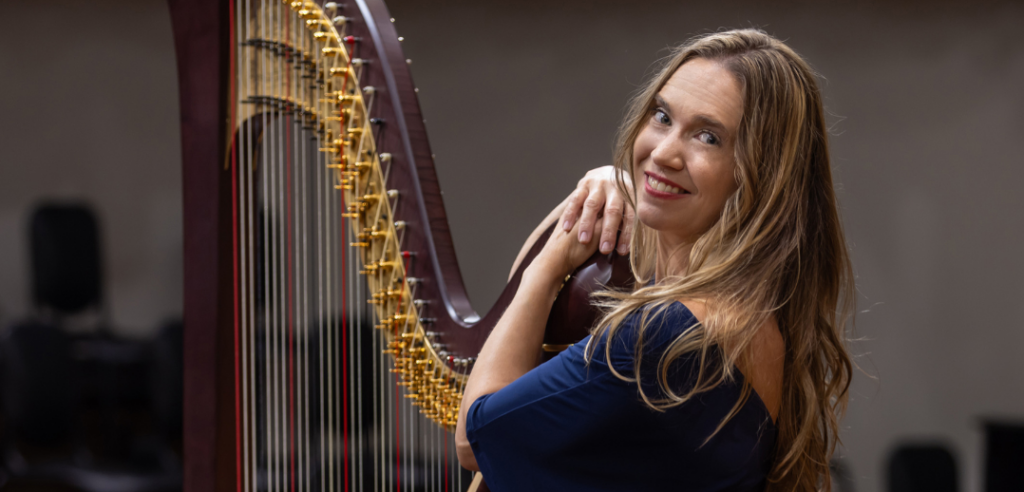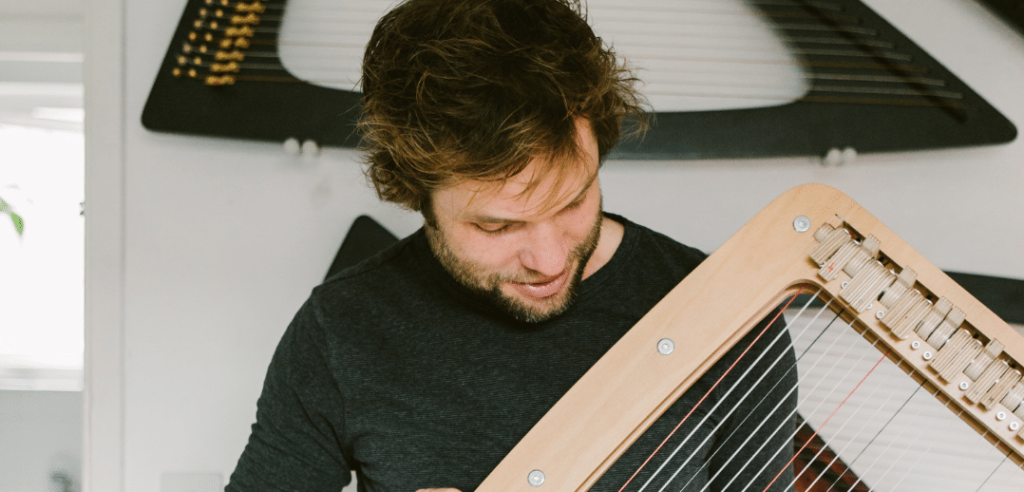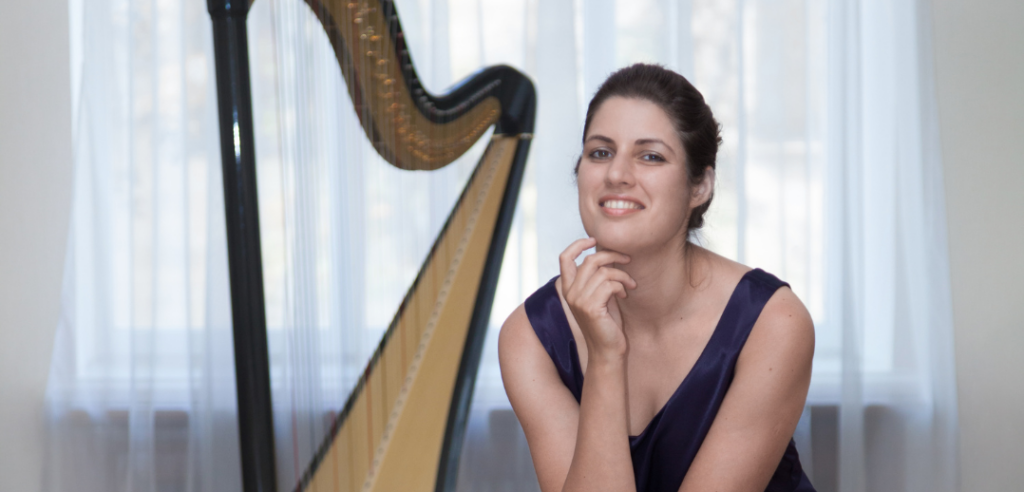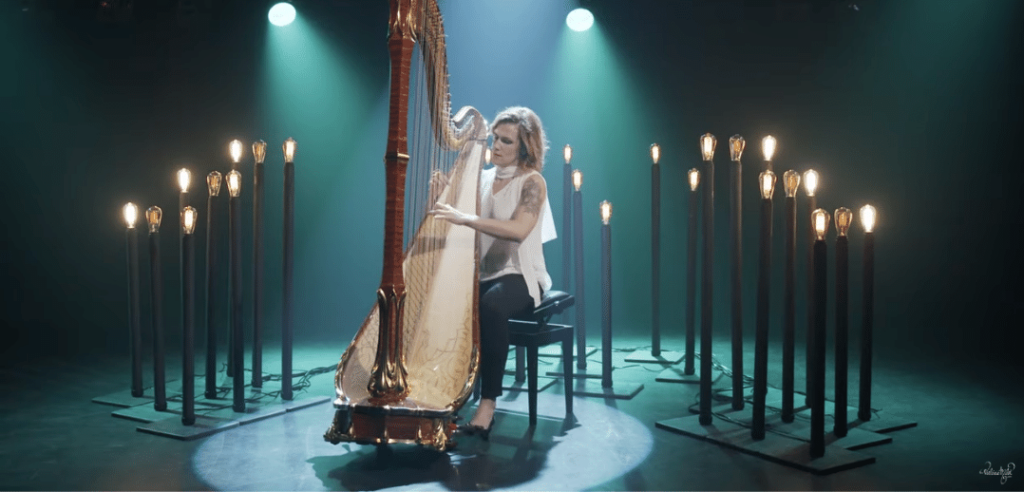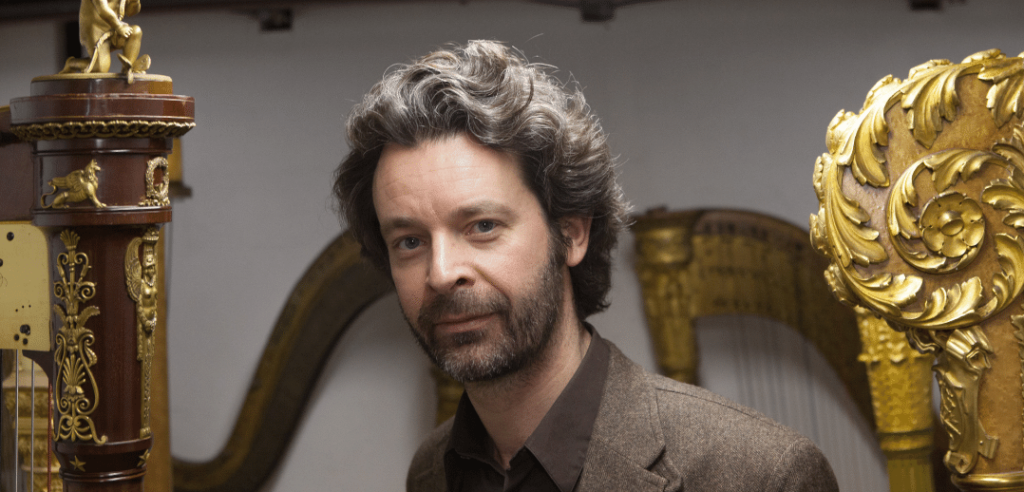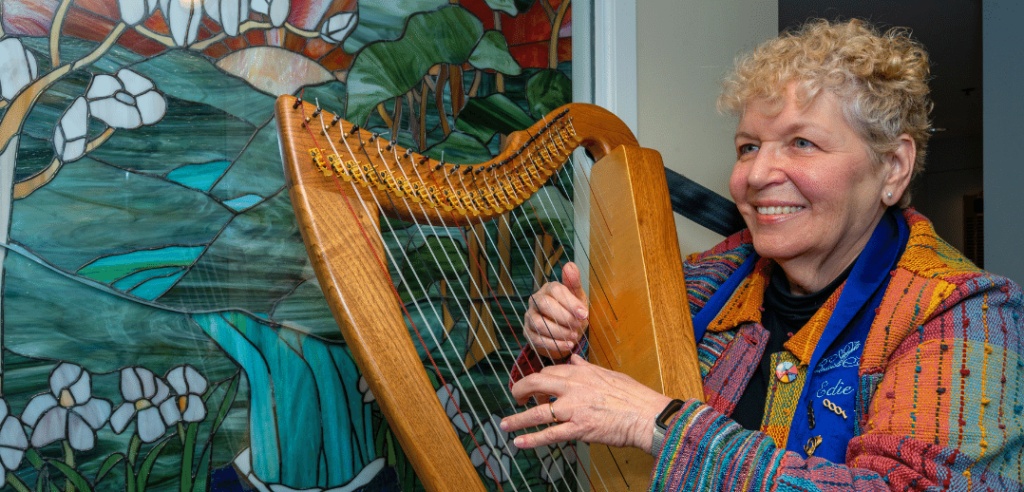Photos courtesy International Harp Contest in Israel
See Article Extras:
Behind the Scenes at the Israel Competition
The Best is Yet to Come, our interview with second place winner Anaëlle Tourret.
YuYing Chen was already a world-class harpist before winning the 19th International Harp Contest in Israel. She landed the principal harp position with the Shanghai Symphony eight years ago, just after graduating from the Shanghai Conservatory. She also has taken the top prize at competitions around the world, including both the 2006 Concours International de Harpe in Lille, France, and the 2009 International Harp Competition “Golden Harp” in St. Petersburg, Russia. Despite all of her success and accolades, winning in Israel is a crowning achievement for YuYing, as it is for any harpist. But this victory was even sweeter for YuYing, because she was also competing against the clock—this was the last Israel Contest she could enter before she exceeded the competition’s age limit of 35. We talked to YuYing at the Contest and then again via Skype in Shanghai.
Harp Column: Congratulations! You are a beautiful musician. Your harp sparkled, and you were the audience’s favorite during the finals. You won the heart of the Israelis!
YuYing Chen: Thank you. I like to express music from my heart. I never try to play forte here or piano there, I just follow my heart. I tell a story when I play and let the audience enjoy the music.
HC: You looked so calm and poised when you competed. You were even smiling. What is your secret to handling the pressure?
To the Victor Goes the Spoils
When YuYing Chen was named the winner of the 19th International Harp Contest in Israel in December, she not only took home the satisfaction of winning one of the world’s most prestigious harp competitions, she also received a stunning list of prizes:
- A Style 23 gold concert grand harp from Lyon & Healy
- $5,000 cash prize from Lyon & Healy
- CD recording produced by Lyon & Healy
- Invitation to perform at the opening concert of the 20th International Harp Contest in Israel in 2018
- Special performance in Israel following the finals on Dec. 5, 2015
- The Hantang Culture Award— a concert tour of five cities in China: Shanghai, Beijing, Tianjin, Shenyang, and Hangzhou
YC: Just before walking out on stage, I would tell the volunteers, “Let’s have fun; let it be.” I never thought about the competition, only about performing the four concerts. I often play the wrong notes or forget the music, but I know that they are only little things that always happen. I think the music in my heart is more important, not all these small details. I want to inspire the audience and let them enjoy the concert and relax, or follow my expression. It is very simple and obvious for me to share the music in this way. When I make a mistake, I just let it go and move forward. I can’t be a machine. I am also human!
HC: Please tell us a bit about your background. When did you start harp lessons and why?
YC: I was 3 years old when I began to study the piano. I only saw a harp for the first time when I was 9. My father loved classical music and wanted me to become a professional pianist, not a harpist! But it is very competitive to enter the conservatory, especially on the piano, so I auditioned on the harp. I entered in the primary school affiliated to the Shanghai Conservatory of Music after studying for six months. At that time I didn’t own a harp and didn’t even really like it. [Laughs]
HC: Did you continue to study the piano after you started harp lessons?
YC: Yes, I studied the piano for 20 years—from the age of 3 to 23! I also studied the flute for six or seven years. I think that having to breathe when I play the flute helped me to become a more musical harpist. Music needs to breathe.
HC: There is a stereotype of Chinese “tiger parents” who push their children to succeed. Did you feel pressure as a child to practice and perform to a high standard?
YC: Yes, I did feel pressure to succeed. When I was a child, my father pushed me a lot, but by the time I was in college, he let me grow up on my own. In China there are many tiger parents that push their children. But, I am not a tiger parent!
HC: Did you continue your harp studies outside of China after completing your studies at the Shanghai Conservatory?
YC: No, I only studied in Shanghai, and eight years ago became the principal harpist in the Shanghai Symphony. I am truly a Shanghai musician.
HC: I was so sure that you would tell me that you studied in the States because your English is so fluent. Who were your teachers, and where did they study the harp?
YC: My first harp teacher was Mrs. Zhang Liduo. Her teacher studied in Russia during the 1950s. My teacher at the Shanghai Conservatory was Prof. Jason Chang. He studied with Carrol McLaughlin in Arizona.
HC: How long did it take you to prepare for the Israel Contest, and how were you able to balance practice time between your job in the orchestra and being a parent?
YC: It took me an entire year to prepare for the contest. I have a full-time job and a young child so I only have two to three hours a day to practice. Fortunately, I already knew half of the required repertoire. My daughter, who is now 4, never wanted me to practice but to spend time with her! But I never tried to practice eight hours a day. I can’t concentrate all day long. I am not a machine. I also practice by reading the scores to avoid injury. I had a painful wrist for two months before the competition. I even thought that I could not participate because of the pain! But, this would be my last chance to compete, because in three years I would be too old. I had to come to Israel this winter!
HC: The list of past prize winners is impressive and includes some of the finest solo harpists in the world. How will your career change now that you have won?
YC: I prefer being a soloist, and I am certain that this prize will enhance my career.
HC: Tell me more about the interest in classical music in China.
YC: Most people listen to pop music, but there is a very wide market for classical music. During the ’90s China eased restrictions and broadened communication with others outside of the country. Now it is fully open. We have many symphony orchestras that tour abroad. Millions of children study music, and there are many Chinese who appreciate the finest European classical music. In my opinion, the highest level of classical music in China is in Shanghai. I am very fortunate to live here.
HC: Millions of students study classical music in China. My understanding is that many study the piano and stringed instruments. Some of the world’s finest contemporary composers and musicians are Chinese. I am curious to know how many harpists there are in China.
YC: There are 20 to 30 professional harpists in China and only five or six in Shanghai.
HC: Do you believe winning the International Harp Contest in Israel will have a direct effect on the growth of the harp community in China? There are millions of piano students and so few harp students. There is so much potential!
YC: I think that many more students will want to start to learn the harp because I won. Part of the prize awarded to me is a solo tour to five cities in China. The harp has been the domain of the West, and now it has the potential to grow and flourish in the East.
HC: What do you see as the future of the harp in general?
YC: We all play the same pieces because the harp repertoire is so small, but I believe this will change. In my opinion, more piano works need to be arranged for the harp and new music needs to continue to be composed. I have worked on some interesting projects with Chinese composers and I am always trying to perform new concertos for the harp in order to expose audiences to new music. I play in an orchestra, but I also love chamber music—especially the trio of harp, viola, and flute. Chamber works that include the harp are also very important for the future growth of the harp. •






